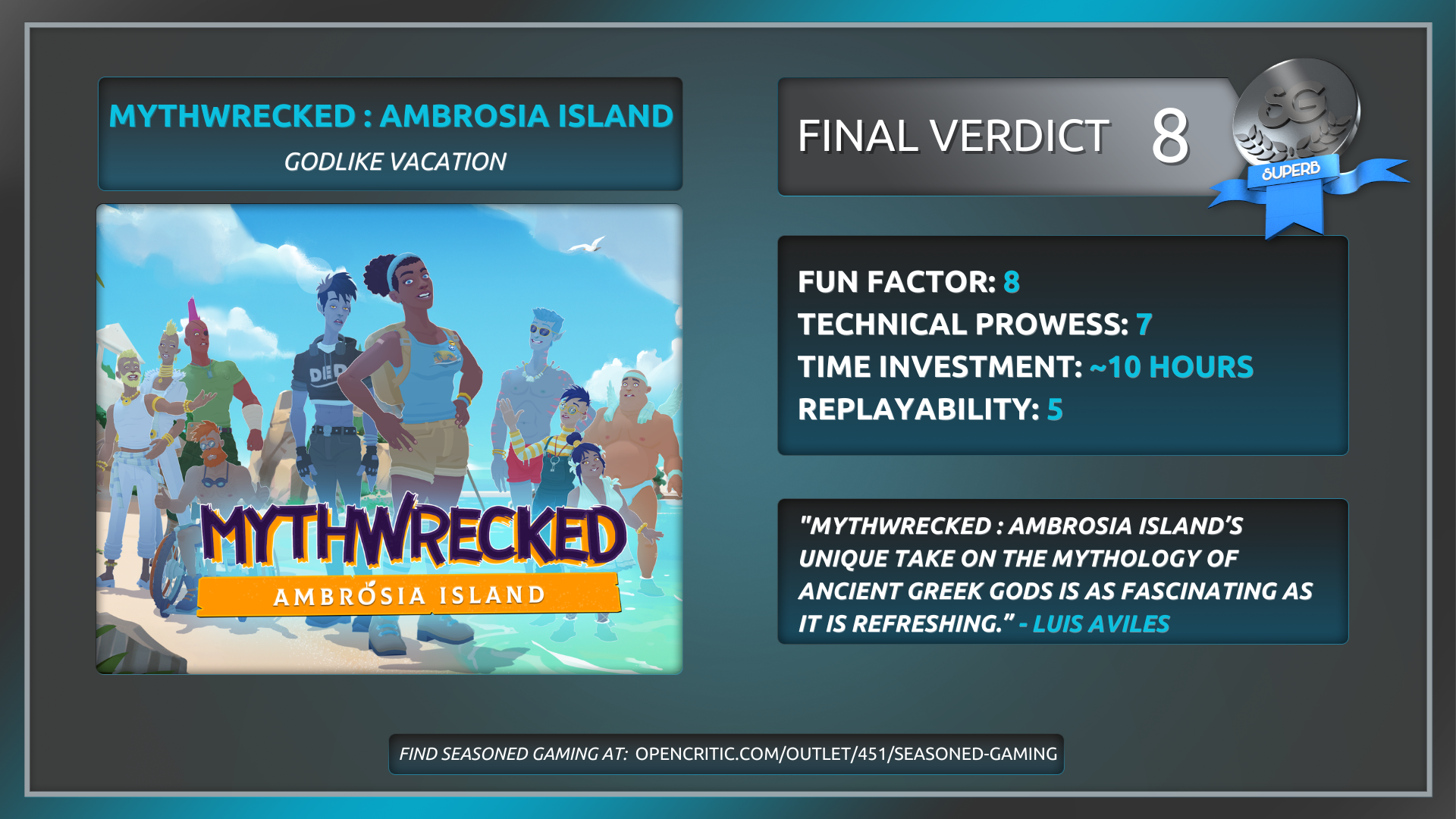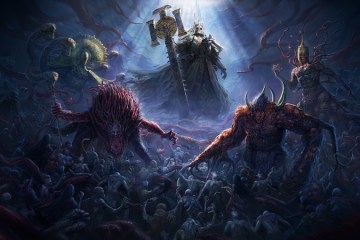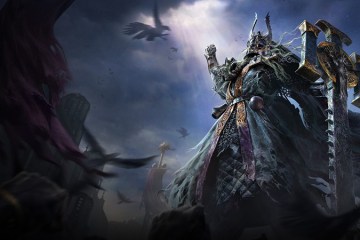According to most medical sources, stress is a leading cause of death in modern society. So much so that it has become a recurring theme in video games of a certain type to lash out against the feeling of burnout by populating them with wholesome, relaxing, or otherwise cozy activities.
Mythwrecked: Ambrosia Island from Whitehorn Games smartly avoids these pitfalls by posing a philosophical conundrum in front of you: what if the smartest minds of a bygone era needed your help? And more importantly, what if they were gods?
New Stories, Old Ways
Fleeing from the everyday grind for new horizons, protagonist Alex finds herself stranded on a strange island after a storm wrecks her passage. Soon after she realizes that this uncommon beach has advanced structures, and when a talking statue by the name of the Oracle startles her, things start to take shape.
Not a retelling of any Greek mythologies but a re-imagining, Mythwrecked: Ambrosia Island succeeds in treading new grounds of age-old gods that we already know, such as Hermes, Zeus, and Ares. As it turns out, all of the gods suffer from amnesia, and it is up to Alex to find items that will aid them in making them whole again.
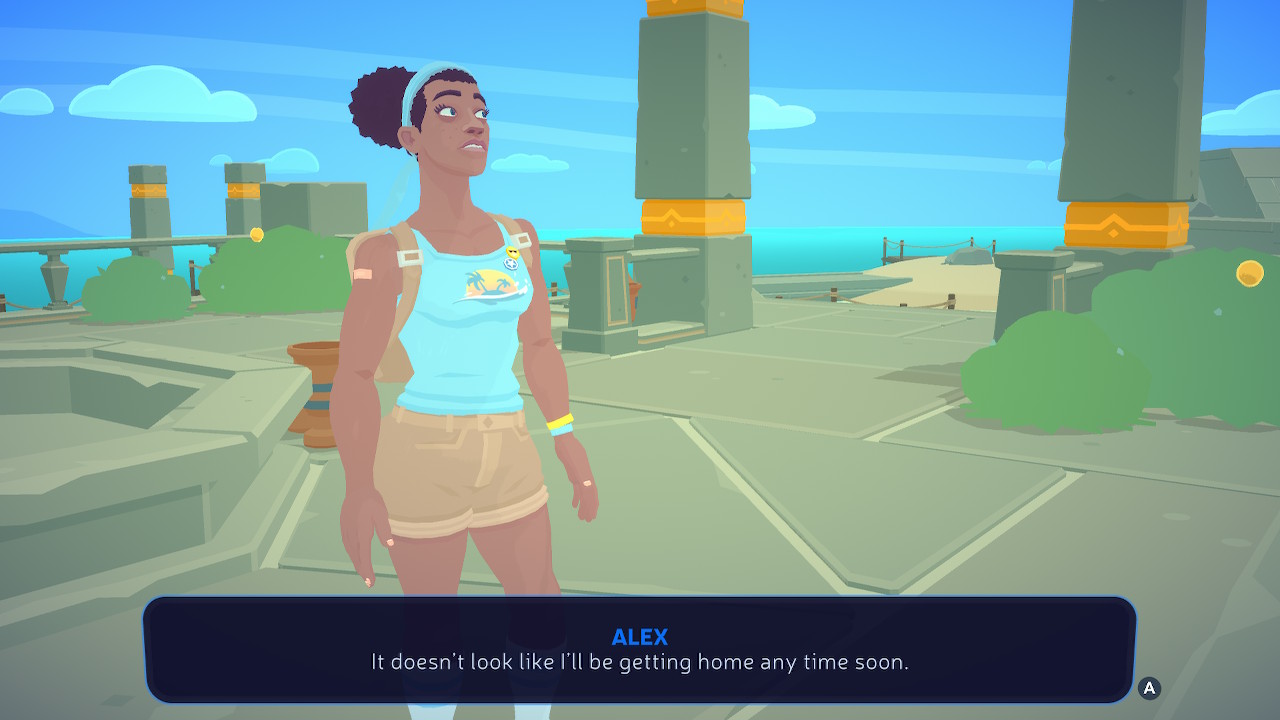
Every god’s design is as modern as it is appealing. Giving some of them an eccentric way of living akin to wellness snobs, punks, and army men instead of the same old togas works in favor of this compelling original argument.
Holidays, Anyone?
The structure of Mythwrecked: Ambrosia Island is brilliantly laid out. After you get your bearings, a small area is open for your exploration. Essentially an isometric collect-a-thon, Alex is granted an “ambrosidex,” a futuristic tablet equipped with a radar that reveals and nudges the player towards the many secrets that the island has to offer to help the gods.
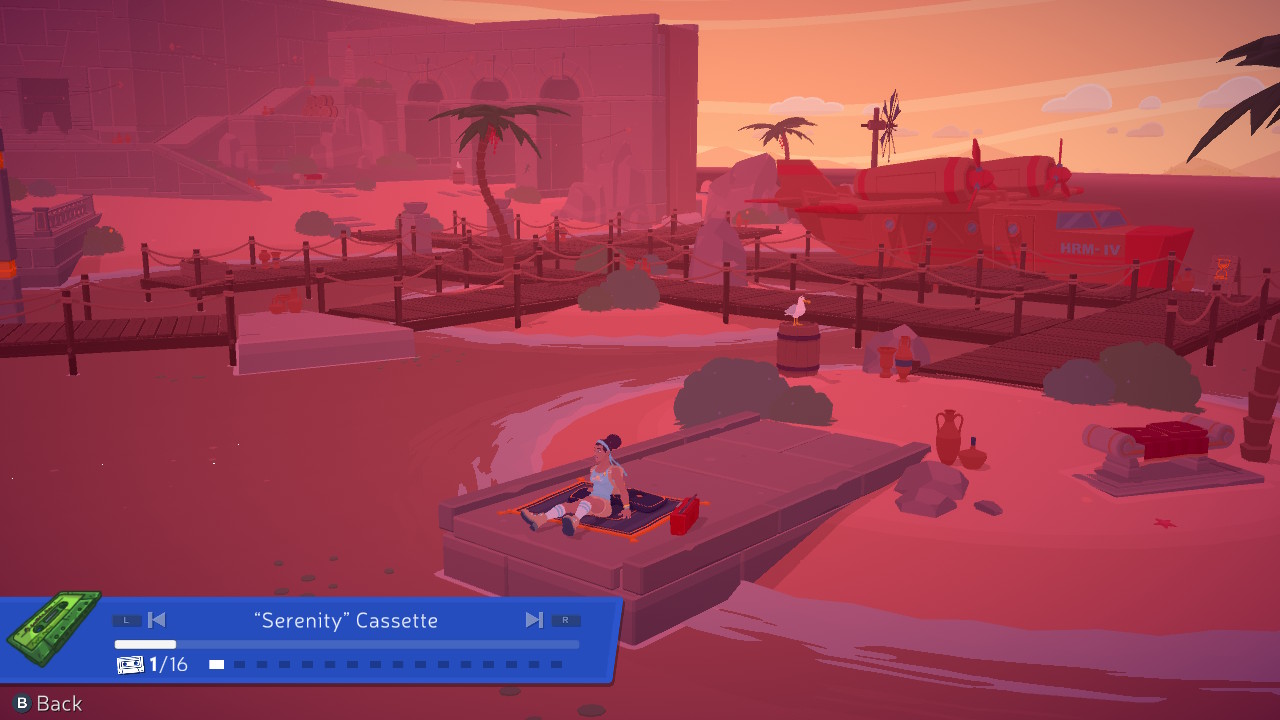
Once you complete the side quest that one of the islanders sets you upon, a new place unlocks, and so on. Considering the island is rather spacious, that feeling of being overwhelmed when let free in a giant sector is nonexistent as Mythwrecked opts for a more digestible approach that fits the game perfectly.
Do Not Go Gentle Into That Good Night
In the beginning, all the Greek gods are cagey and off-putting. Items like Pandora’s Box, Hermes’ Sandals, and kids’ toys for Ares remind Alex of who these timeless icons once were. What’s more, once you earn the gods’ trust, you can enter their homes and be given rewards for your dedication in getting close to them.
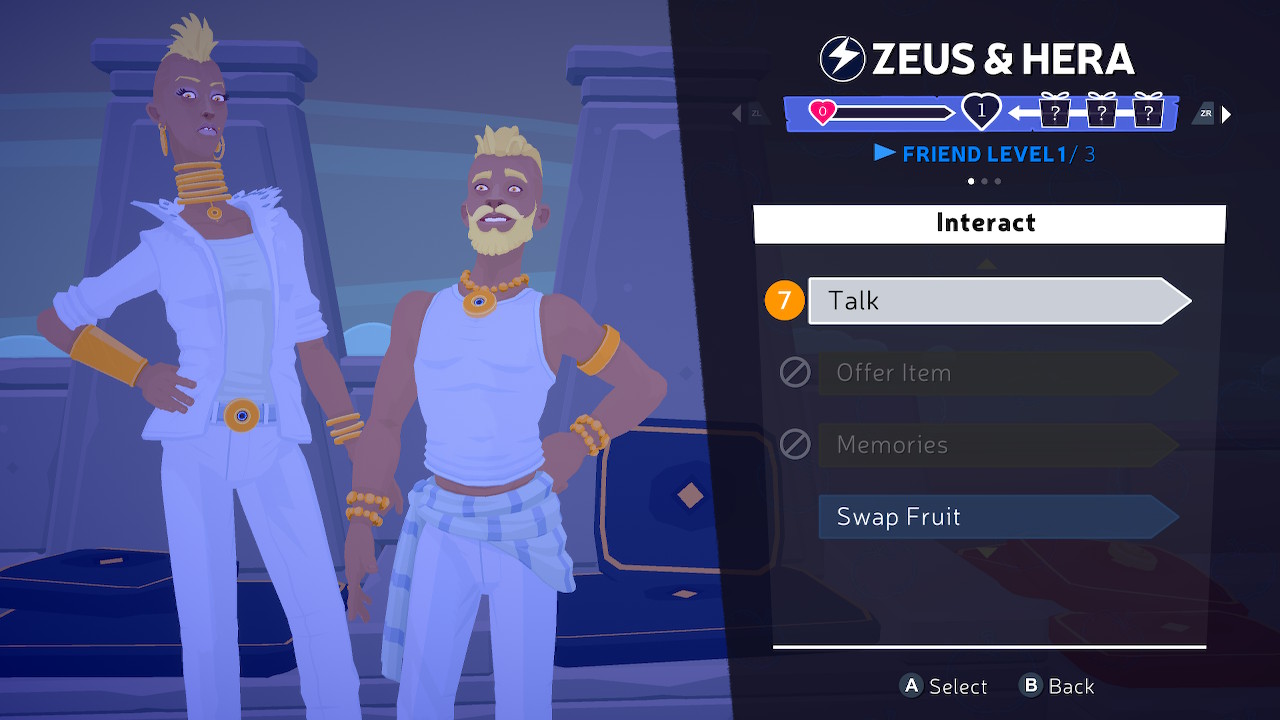
While it may seem like a straightforward gameplay loop in which you do a few favors to continue progressing in the story, the capacity in which the game develops once you get to know everyone is addictive. There is no one rigid way to get on everyone’s good side, so exploring at your leisure is advisable.
The favors for each god are handily scattered across the map so that the player doesn’t get lost in the process of doing one instead of the other, and tracing a methodical path to make the most of exploring every corner of the island is possible for the most efficient-minded players.
Luxury Retreat
For convenience, close to the spot of each deity are benches to pass the time, effectively skipping any annoyance of having to run around and back when it is possible to meet these islanders, who always seem to be indisposed when you need them the most.
Unlike many cozy farming games, there is no penalty for staying up late exploring the island. In fact, there is nothing wrong at all if you decide that Alex is not afforded sleep at any moment during the game.
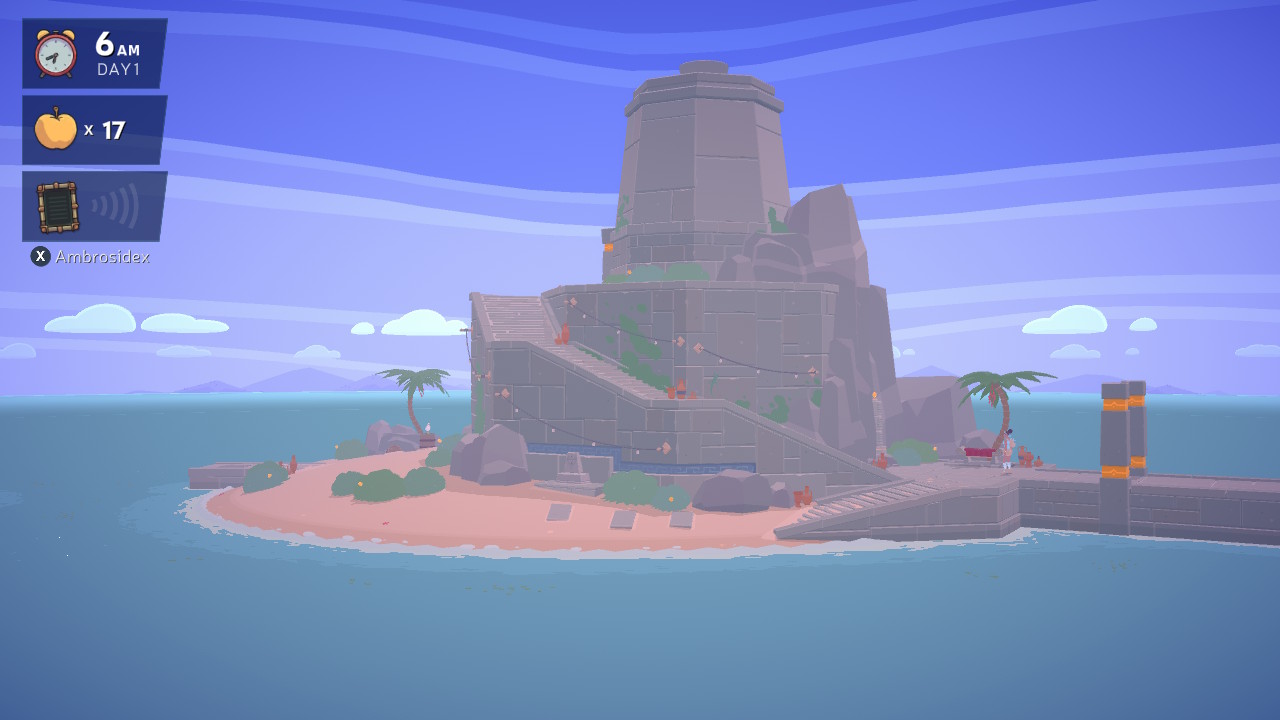
The resting areas are mainly used to advance the time when the islanders are not available because you lose track of time while gathering new furniture for Alex’s new home in the lighthouse. This lends that feeling of relaxation to freely set in, letting go of that urge to complete every item on the to-do list before the day ends.
Of course, on Nintendo Switch some compromises had to be made to run on the 7-year-old system. These are mainly seen in the loading times as you move through different regions of the sprawling map, which most Switch users are used to by now. Though not as alarmingly as it sounds, this is offset by its gorgeous graphics. At every moment, this island resort lends itself to some gorgeous vistas possible thanks to its defined art style.
Peak Relaxation
Well-positioned fast travel doors that can take you from one place to the next in the blink of an eye further prove the point of the game’s comfort. Most games have fast travel by modestly opening up a map and instantly appearing there, but to travel from one portal to a hub that can take you to another portal is part of the game’s overall commitment to relaxing and not doing everything as soon as possible. This is a vacation, after all.
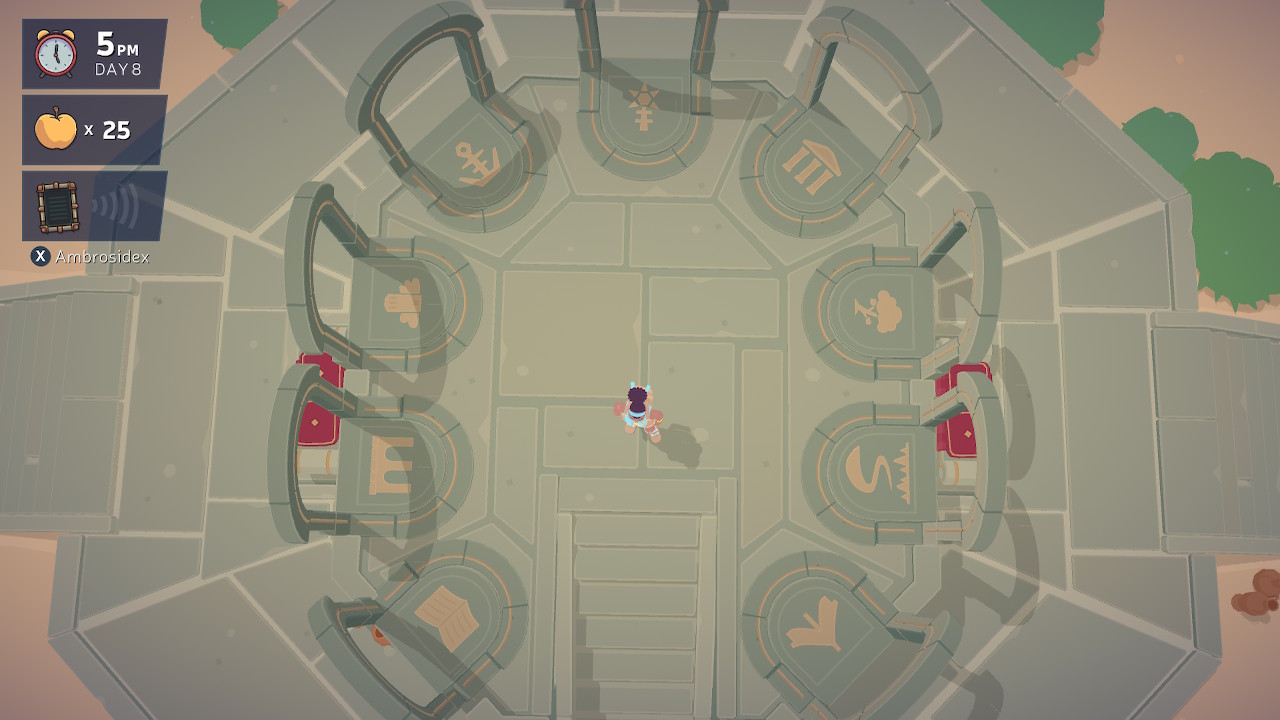
The beach setting would not be the same without its suitably relaxing soundtrack. Depending on the time of day, the music effortlessly changes to be more appropriate for its time, like a more active bossa nova at noon or calming piano instrumentals as dusk falls.
Godlike Vacation
The moment where it all comes together is decidedly when the first character starts to remember and talk about their past life. Seeing all these characters, previously depicted in epics, in such a laidback setting allows them to talk about their emotions while still showing the inspirations before them. Every time Alex takes a breather in chill-out spots, she says she feels better, giving a clear message that burnout is not the answer.
MythWrecked: Ambrosia Island‘s unique take on the mythology of ancient Greek gods is as fascinating as it is refreshing. Giving it a human touch rarely seen in stories of its ilk, it sends a subtle message of benevolence in a world where it is lacking. To wrap that meaningful narrative in an entertaining collect-a-thon gameplay loop in which you are rewarded with becoming besties with them is all that more amusing.
Thank you to Whitethorn Games for the review code. You can find Seasoned Gaming’s review policy here.

